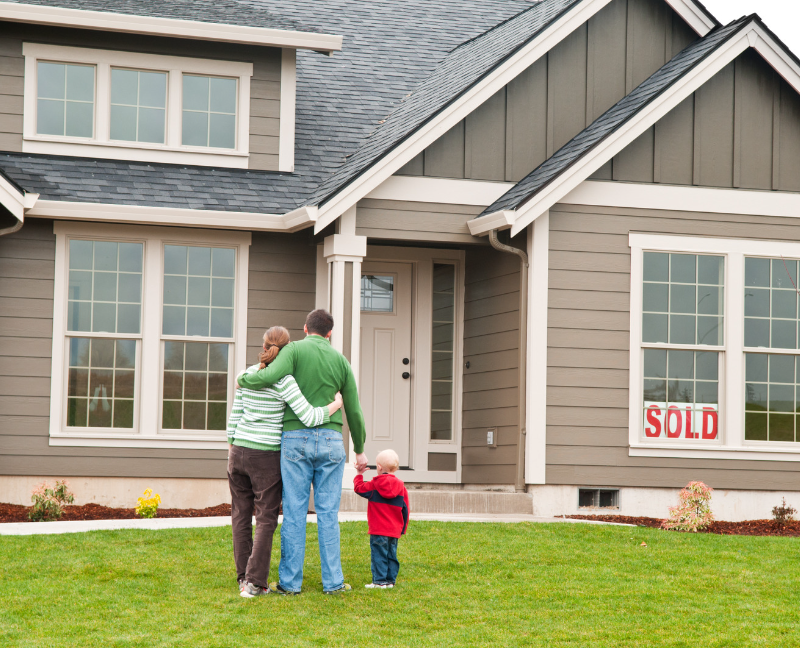Choosing the right home for your family is a struggle; saving up for a home deposit is another.
On average, it takes roughly 4 years or 51 months for a first-time home buyer to save the 20% down payment.
That's quite long, and many potential homeowners are having a hard time getting beyond the deposit obstacle and becoming homeowners sooner.
What Is The Average Home Down Payment?
As mentioned above, the average home down payment is 20%; however, some lenders will agree to a 5% or 10% home loan deposit.
It all depends on the lender and their requirements. The advantage of having at least 20% or more is the perks you'll get from the home loan provider, such as the competitive interest rate and payment terms.
Below is a more detailed explanation of why you should save a 20% deposit:
LOWER REPAYMENTS
If the loan term stays the same, the loan amount would be lower if you made a larger down payment. In short, the monthly or fortnightly repayment is lesser.
LOWER INTEREST RATES
Paying a bigger deposit means having a lower Loan-To-Value Ratio, resulting in a lower interest rate.
VARIETY OF LOAN PRODUCTS
When the initial deposit is lower, the borrower has a limited choice of loan products. On the other hand, when the deposit is bigger, the borrowers get access to a wider range of loan products.
Can You Get A Home Loan Without A Deposit?
It depends.
Normally, you need to have a deposit on a property, unless you're refinancing. However, some lenders may provide mortgages starting with as low as a 5% deposit even without a downpayment.
Nonetheless, it's still better to save up a 10% or 20% average home down payment or more to have more lending possibilities.
How To Save For The First Home Deposit?
The first steps in saving are to have discipline and clearly understand where your money is going each month. Below are some tips that you can consider when you want to save for your first home deposit.
Set Up A Budget
The key is to keep track of your daily spending on a daily, monthly, and annual basis. This gives an idea of whether changes need to be made or if there are any opportunities where you can save. A budget might include expenses (variable, fixed, and discretionary) as well as your savings goal or the amount you need to save every month to fund something, let's say travel or a new bag.
List Down Existing Debts
One of the factors that affect the decision of a lender is the current debts under your name. For loan providers, it might suggest your ability to repay a house loan. Therefore, in addition to using your to cover interest rates, it can also influence your chances of getting a mortgage.
Some examples of these debts might include auto loans, student loans, credit cards, or other recurring expenses that you pay using your regular income.
Failing to repay a loan on time or defaulting on it can decrease your credit rating, making it more difficult for you to get a loan or better loan terms.
Have The Discipline
How committed are you to saving money? Can you fight the impulse to spend on unnecessary things?
Prioritizing to save money can help you reach your goals faster, although that doesn't necessarily mean removing unnecessary expenses in your budget.
What you can do is have a separate bank account intended for savings, and transfer funds to it regularly. This might help you avoid the urge to spend so much.
Doing so can also help you create a budget since you need to track down your incomings and outgoings more carefully if you only have a specific amount of money to spend each month to stay out of the red.
You can decide to go one step further and open up various savings accounts, each for a specific goal. For instance, you might have easy-access savings account that you can rapidly access for unanticipated expenses or emergencies and a higher-interest savings account for longer-term savings. This can help you not only have a better cash flow but also, support you in saving faster.

Lower Your Expenses
Re-assessing your fixed expenses, such as your rent or car loan, is another way you could try to save more money. Renters who want to save money for a down payment on a home may consider moving into a smaller, less expensive home, splitting the rent with a roommate, or even moving in with relatives.
While this may seem like a drastic lifestyle change, the total savings over six to twelve months might be enormous and could even do more than double the deposit needed for your house loan.
Genuine Savings Vs Non-Genuine Savings
Let's say that you've done all the legwork and saved your down payment for your mortgage. So, all of it belongs to you, right? Well, some lenders might have a different perspective. It's crucial to understand where the savings came from and how some lenders could see them.
This is why it's important to know the difference between genuine savings and non-genuine savings.
Lenders have their own definitions of what makes genuine savings and non-genuine savings, but basically, these are the ones stated below:
What Are Genuine Savings?
Genuine savings can be two things -- it can be the amount held in the borrower's account for three months or more and it can be the regular transaction saved in the savings account.
It can also be the publicly traded shares under the borrower's name.
What Are Non-Genuine Savings?
Bonuses, tax refunds, funds from a sale, or gifts are examples of non-genuine savings. It might be considered genuine savings if left in a savings account for three months or more; however, this might still depend on the lender if they will consider it as such.
These are just some of the things you might need to know when saving for your first home deposit.
If you need help with mortgages or how to acquire your dream home, our expert realtors can help you!

